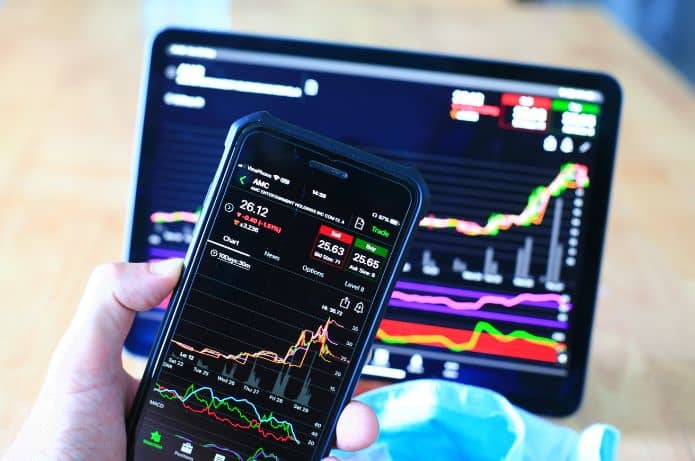New data released today by Coursera, one of the world's largest online learning platforms, reveals the fastest-growing professional skills through 2025, based on insights from five million students. Apprentices are rapidly acquiring AI skills to keep up with the evolving job market demands. Currently, AI is the fastest-growing skill among employees, job applicants, and students, with enrollments in related courses increasing by 866% year over year.
These are the findings from the roomCoursera's annual Professional Skills Report, based on insights from over five million students who accessed the platform through more than 7,000 institutional clients in 2024. The main highlights of the report include
- While AI skills are growing globally, only 28% of degrees will be taken by women in 2024, highlighting the urgent need to address gender disparities in the AI workforce.
- Six of the top ten fastest-growing tech skills this year are related to cybersecurity and risk management, amid a 71% increase in cyberattacks on the previous year.
- Human skills are also among the fastest growing as students seek to build a balanced skill profile. Assertiveness and Communication were among the top 10 skills in 2024.
- Three of the top 10 skills sought by students were focused on sustainability, as the World Economic Forum ranks sustainability as the second fastest-growing job function from 2023 to 2027.
- Generative AI, Workplace Technologies and Analytics were the top skills among job seekers.
Generative AI Learning Grows, but Brazil Lags Behind Emerging Markets
Generative AI is now the fastest-growing skill among employees, students, and job applicants worldwide. More than half (54%) of enrollments in Coursera's generative AI courses come from students in emerging markets such as India, Colombia, and Mexico. However, Brazil's participation in this rapid adoption remains limited, lagging behind these markets.
Brazilian students are still primarily focused on building fundamental skills, with courses such asFoundations: Data, Data, Everywhere, Google AI EssentialsandFoundations of Project Managementbeing the most popular, representing6.3 millionout of 162 million Coursera students. Brazil has a long way to go to fully harness the transformative potential of AI and other high-demand technologies.By 2025, the global race for AI literacy is expected to intensify, further highlighting the urgency for Brazil to begin closing this gap.
Only 28% of AI Enrollments are Women
Although AI skills are growing globally, only 28% of enrollments in Coursera's generative AI courses were made by women. This is particularly concerning, considering that79% of working women—compared to 58% of men—are employed in occupations susceptible to the impacts of generative AI.
Marni Baker-Stein, Chief Content Officer at Coursera, highlighted:
When we look at the current technological landscape, it is clear that the gender gap remains pronounced. Gender inequality in STEM has been an longstanding issue and is now becoming evident in the field of AI. Just22%Two out of three AI and data science professionals are women, which creates significant barriers to social equity and technology effectiveness. Encouraging women to pursue skills in AI through educational and policy initiatives in the workplace will be crucial to closing the gap and ensuring that the benefits of AI are accessible to everyone.
Cybersecurity: A Growing Priority in Brazil Amid Increased Attacks
The report2024 Threat Landscape da Kasperskyrevealed that Brazil led Latin America in ransomware attacks, with 1.2 million incidents blocked in the region between June 2023 and July 2024—an alarming average of 3,200 attacks daily.
Despite these challenges, Brazil has the potential to become a regional leader in cybersecurity by investing in high-demand skills such as cyber risk management, threat modeling, and Security Information and Event Management (SIEM). Adopting advanced tools, such as generative AI, for cybersecurity can drive innovation and economic growth in the Brazilian digital environment.
Marketing Evolution: Embracing Technology to Engage Customers
In Brazil, companies are shifting from traditional marketing approaches to the use of new technologies, such as AI-powered chatbots and personalized analytics, requiring marketing professionals to master these tools to engage customers effectively. When developing skills inEmail Marketing, Customer Engagement and RetentionandAdvertising and Campaign Management, the apprentices are trained with highly demanded knowledge, ready to seize the growing opportunities in marketing and brand management. These advanced capabilities enable companies to connect with the audience more effectively, optimize campaigns, and deliver data-driven strategies that meet the ever-evolving expectations of consumers.
Prompt Engineering: An Essential Skill
With 22% of recruiting professionals globally updating job descriptions to include the use of Generative AI, courses likePrompt Engineering for ChatGPTandGenerative AI: Prompt Engineering FundamentalsThey are among the top 5 most sought after by students and job applicants. These skills are essential for the effective use of AI tools in various professional contexts, making prompt engineering a crucial competency to remain competitive in an increasingly AI-driven job market.
Christian Hernandez, Head of Coursera Enterprise in Latin America, said:Generative AI is ready to transform jobs and industries in Brazil at an unprecedented pace. To unlock your full potential, digital technologies could generate more than$1.3 trillion in annual impact by 2030throughout Latin America. For Brazil to capitalize on this opportunity, it is crucial to prioritize investments in AI training and literacy. As 2025 approaches, equipping individuals with the skills needed to harness this technology will be essential to drive innovation and sustain economic growth.
Methodology
The fastest-growing skills for 2025 were identified through a comparative assessment of Coursera's corporate student enrollments throughout 2024. Of the more than 1,000 skills listed in the Coursera catalog, the fastest-growing skills are those that showed the largest increases in their overall enrollment ranking during this period and are expected to continue growing or remain popular in 2025.










